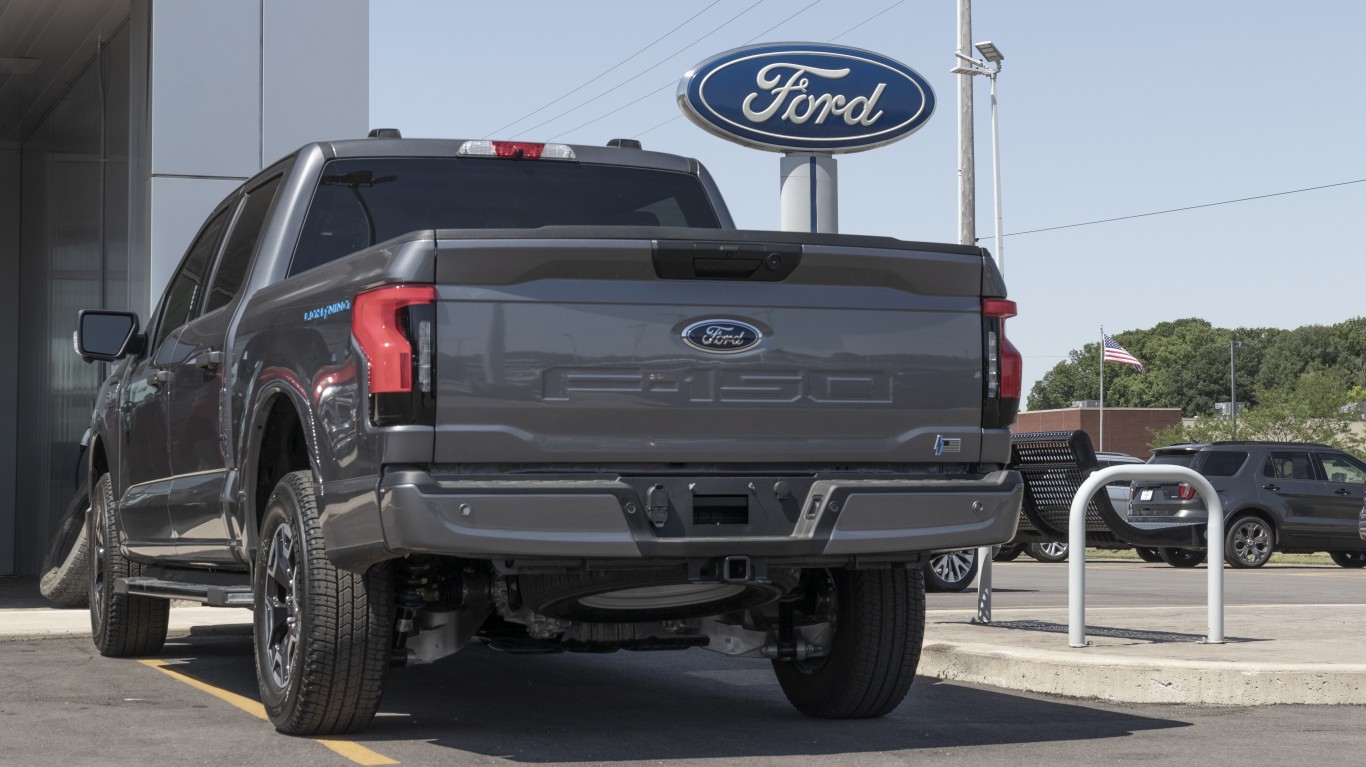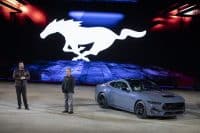
Shares of the Ford Motor Company have fallen much too far. They are off 14% over the past three months, while the S&P 500 is largely flat. The automaker’s progress in the electric vehicle (EV) space alone is enough to justify a much higher price.
[in-text-ad]
The case against Ford falls into three categories. The first is that a recession will undercut car sales in general. The second is that parts availability will continue to cripple production. The third is that it remains largely a legacy manufacturer. Adam Jonas of Morgan Stanley upgraded Ford from Underweight to Equal Weight. His argument is based largely on the fact that Ford’s share price is low enough to justify a bet on its future, even when the case against Ford may have some merit. That merit has become weak.
Granted, the economy may dip into a recession. Yet, car demand has been pent up for well over a year. Even if some buyers withdraw from the market, that demand will not disappear. As to parts supply problems, there has been brightening news that the microchip shortage problem may end before the close of 2022.
The most powerful case for Ford is its step in the EV market. It has put a better stake in the ground than any other global manufacturer. Its F-150 Lightning is part of the lineup of the top-selling vehicle in America. Millions of people own F-150 legacy models. That is a huge potential market for an EV. In fact, it is the largest such market in history. Ford also has beat Tesla in the race to get an electric pickup to market.
The decade-long doubts about Ford’s management also have started to disappear. Despite a string of mistakes, Executive Chair William Clay Ford Jr. has appointed James Farley Jr. as chief executive. No matter the drop in Ford’s stock, Farley has become one of the more admired CEOs of a large global car company.
Whatever the negative case against Ford is, today that is overshadowed by its potential.
Are You Still Paying With a Debit Card?
The average American spends $17,274 on debit cards a year, and it’s a HUGE mistake. First, debit cards don’t have the same fraud protections as credit cards. Once your money is gone, it’s gone. But more importantly you can actually get something back from this spending every time you swipe.
Issuers are handing out wild bonuses right now. With some you can earn up to 5% back on every purchase. That’s like getting a 5% discount on everything you buy!
Our top pick is kind of hard to imagine. Not only does it pay up to 5% back, it also includes a $200 cash back reward in the first six months, a 0% intro APR, and…. $0 annual fee. It’s quite literally free money for any one that uses a card regularly. Click here to learn more!
Flywheel Publishing has partnered with CardRatings to provide coverage of credit card products. Flywheel Publishing and CardRatings may receive a commission from card issuers.
Thank you for reading! Have some feedback for us?
Contact the 24/7 Wall St. editorial team.




